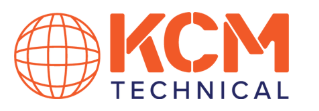How to Communicate Professionally in Every Job Setting
How to Communicate Professionally in Every Job Setting
Effective communication is the cornerstone of a successful career, especially in roles that demand high skill and precision. It’s the tool that transforms technical expertise into collaborative success and individual talent into team achievement. We understand that how you convey information is just as important as the information itself. In this guide, we’ll explore the essential communication strategies that help professionals thrive in any workplace environment.

Clarity and Conciseness in Technical Discussions
In high-skill environments, precision is paramount. We believe that communicating your ideas clearly and directly prevents misunderstandings and enhances project efficiency. Avoid jargon when speaking with non-specialists and always aim for brevity. This practice ensures that your message is not only heard but also understood and acted upon, fostering a more productive workplace

Active Listening: The Foundation of Collaboration
True collaboration begins when you genuinely hear what others are saying. At our core, we value partnership, which requires active listening. This means giving your full attention, asking clarifying questions, and acknowledging the speaker's points before responding. It’s a skill that builds trust and ensures everyone on the team feels valued and respected.

Mastering Written and Digital Correspondence
Your professionalism is often judged by your written words. From emails to internal messages, every piece of writing should be clear, proofread, and maintain a respectful tone. We advise professionals to structure their digital communications logically for easy reading. This attention to detail reflects your competence and respect for your colleagues' time and attention.

Navigating Non-Verbal Cues and Body Language
Much of our communication is unspoken. Being aware of your posture, eye contact, and gestures is critical in conveying confidence and sincerity. Similarly, learning to read the non-verbal cues of others can provide deeper insight into conversations. In a diverse workforce, this awareness is key to building stronger, more empathetic professional relationships.

Adapting Communication for Diverse Audiences
In today's global workplace, adapting your communication style to diverse audiences is a critical skill. Whether collaborating with international teams or explaining technical details to a client, tailoring your language and context ensures your message is effective. This flexibility demonstrates cultural awareness and enhances team cohesion in any high-skill environment.

Giving and Receiving Constructive Feedback
The ability to give and receive constructive feedback is a hallmark of a true professional. When offering input, frame it with specific examples and focus on actionable solutions for growth rather than past mistakes. This approach fosters a culture of continuous improvement, a quality highly sought after by employers for top-tier trade jobs.

Conflict Resolution in High-Stakes Environments
Disagreements are inevitable in high-stakes projects. Effectively navigating conflict involves staying calm and focusing on the issue, not the person, to find a mutual solution. As a leading staffing agency, we know employers seek these advanced skills. Contact KCM Tech today to connect with companies that value such professional maturity.
Mastering clear, concise, and respectful communication is a powerful way to advance your career. By actively listening and being mindful of both verbal and non-verbal cues, you build the trust and rapport essential for success in high-skill and trade jobs. At KCM Tech, we connect talented professionals with companies that value these skills. Explore our resources or browse our current job openings to find your next opportunity.
